Portugal is one of my all time favourite travel destinations and it’s a great place to go solo. Portugal is rich in everything that a culture vulture looks for in travel – art, architecture, museums, old towns, castles and cathedrals. There are phenomenal beaches along the Algarve and silver coast (between Lisbon and Porto) that make for great places of relaxation. And the gastronomy – Portuguese food is out of this world! I’ve been travelling around Portugal on and off for the last two years and today I bring to you my ultimate guide to solo travel Portugal.
When to go to Portugal
Portugal can be very hot in the summer (avoid July and August if you don’t like hot weather) and very cold in the winter (avoid December and January). Also December and January many clubs and restaurants in the Algarve will be closed as it is the tourist ‘off season’. A lot of restaurant and bar owners take their holidays at this time.
So the best time to go to Portugal in my opinion is the shoulder season from April to June and then September to October. October and May are my favourite months to visit, when it’s mild but still warm and not jam packed with tourists.
If you are travelling to the Algarve consider the Portuguese and UK school holidays (a lot of Brits travel to Portugal in school hols – many of them with a brood of screaming kids!) If business and kids are not your thing then avoid these times of year.
Also consider if there are any particular festivals that you want to go to in Portugal. There are a lot of music festivals on in the Algarve during summer. Also local towns have their own ‘festas’. If you are interested in Palm Sunday and Easter parades then Easter is a great time to visit to see some of the religious processions. Portugal is still a predominantly christian country with an active Christian community.
What to pack for Portugal
Your clothing will depend on the time of year that you visit. I would recommend for everyone to take one pair of jeans and one jumper just in case the weather cools off, particularly in the evenings. But for the most part, especially in the summer, your clothing can mainly be shorts, leggings, T-Shirts, vest tops and skirts/dresses. You might also find this article on what to wear in Portugal quite helpful.
If you are planning what to pack for Portugal then here are a few essential items that I recommend:
- Charging pack – You don’t want to run out of battery on your smartphone, particularly if you have train and bus tickets on there.
- Phone and laptop and chargers – Don’t forget your chargers! And if you don’t have European plugs you will need to take a converter. This is a good one to use to convert
- 2 x Bikini or swim shorts
- Comfortable and lose fitting clothes
- For girls – take a few skirts and dresses as they are comfortable in the Portuguese heat
Guide to travel around Portugal
Portugal is easy to get around even if you don’t have or rent a car. However, some of the more remote areas of the Algarve are best explored by car if you can hire one. Remember that Portugal is right hand drive. You can rent a car in Portugal for about €50 a day.
Personally I don’t drive and I wouldn’t fancy it on those hilly cobbled roads either!
It should be noted that it’s easier to get around Portugal by public transport along the coast. Most coastal Algarve towns and cities are connected by train other than Sagres. There are direct trains from Porto and Lisbon to destinations such as Coimbra, Aveiro and Faro. So you can even travel by train from the North to the south. You can book you trains on CP.pt and it’s easier and cheaper to book them in advance.
If you download the CP app you can buy digital tickets. Just remember that you will need to put in your passport number to book and carry your passport on the train with you. Mine has been checked by conductors before. Also, make sure that you have enough charge in your phone at all times. A charging pack is an excellent thing to bring so that you don’t run out of battery on your smartphone. Mine nearly ran out on the train from Aveiro to Porto – luckily it lasted until the second he checked my ticket – and died the minute after!!!! I learnt the hard way!
Another fantastic option is the buses – just be aware that sometimes they can run a little late. Also some of the roads may be a little windy especially inland to Northern destinations such as Lamego and Vila real. You can book with Rede Expressos and Flixbus – both have apps that you can download and allow you to book online. Rede Expressos is more local and Flixbus is more long distance (they will also take you to destinations in Spain).
The cost of travelling in Portugal by bus is very cheap – I was travelling between the main northern towns and cities of Portugal (Porto, Amarante, Lamgeo, Aveiro) for between €9-15 per ticket booking only one day in advance. Again make sure that you phone is fully charged and arrive at the bus station at least 15-20 minutes before your bus is due to depart.
Download these apps
Ahead of your trip to Portugal, download these apps to help you along your way…
- Booking.com – Great for booking accommodation (both hostels and hotels).
- Rede Expressos – A popular Portuguese bus company with links between major cities.
- Flixbus – Buses around Portugal and also connecting Portugal to Spain and the rest of Europe.
- Cp.pt – The Portuguese train network.
- Duolingo – App for learning basic Portuguese.
Solo travel Portugal – is it safe?
Obviously all travel comes with a bit of risk and you always need to consider who you are hanging out with and where your stuff is. But I can honestly say that I have taken over 12 solo travel trips to Portugal in the last 2 years and I have literally never had a safety problem. The biggest risk I would say is theft in Lisbon – don’t set your phone down on a table in a bar or restaurant or take it out on the metro. The Portuguese are very receptive and positive to solo travellers especially female solo travellers. Whenever I have had a problem there has always been someone to stop and help me.
A brief history of Portugal
Portugal is very rich in history and its worth ready up and researching a bit about it before you go. It has been invaded several times and throughout history Portugal was conquered by the Celts, Romans, Visigots (Barbarians from the North), Moors (Islamic invasion) and then the Christians. Portugal did not become independent from Spain until 1142 and so a lot of Portugal’s early history is entwined with Spanish when it was the Iberian peninsula.
Unmissable destinations in Portugal
Most people head to see Lisbon and Porto if they are limited for time. However, if you can afford to spend a couple of weeks there, you might consider adding on some Northern cities or the Algarve coast.
Lisbon
Lisbon is absolutely stunning. It’s very tourist friendly and digital nomad friendly with a lot of hostels and co working spaces. It’s rich in monuments including Sao George castle and Lisbon Se Cathedral. I’d highly recommend a journey on the yellow tram which goes past the main sites and some of the Churches of Lisbon. Also take at least half a day (even a day) to go to Belem for Jeronimos monastery and tasting the Pasteis de Belem (custard tarts recipe by the monks!)
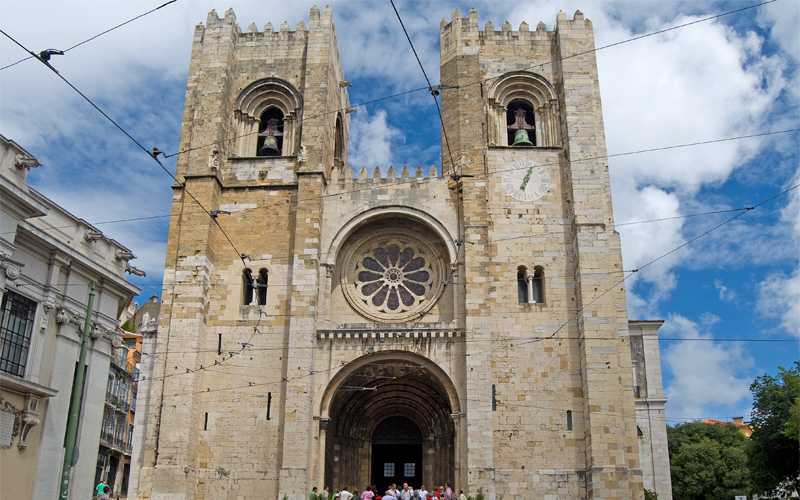
Porto
Porto is Portugal’s second city and the riverfront along the Duoro river known as ‘Ribeira’ along with the Old town is a UNESCO world heritage site. Don’t miss the Cathedral, Church of Gold, Clerigos tower, Bolsa Palace (below) and Matosinhos beach.
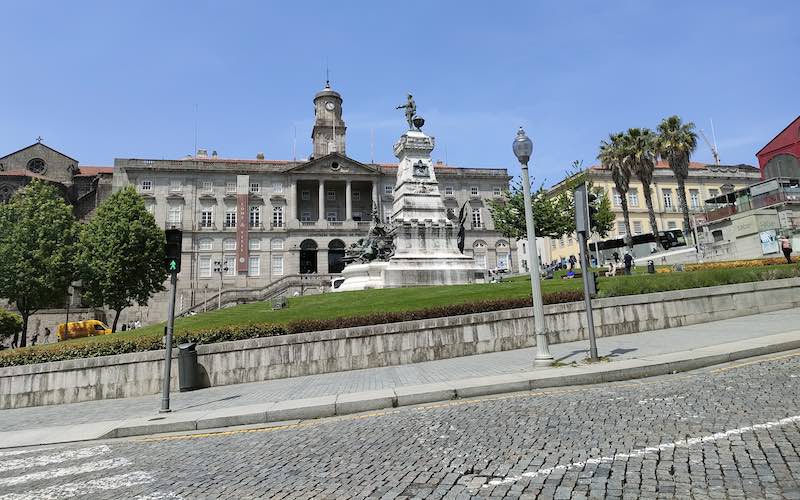
Sintra
SIntra can be combined with Porto as a day trip if you are stretched for time but want to visit from Porto. At the same time, if you have longer to spend, you could enjoy 3 full days in SIntra. The main attractions of Sintra are the stunning Pena Palace (a combination of Moorish and European architecture), the Moorish castle and the Palace of Monserrate.
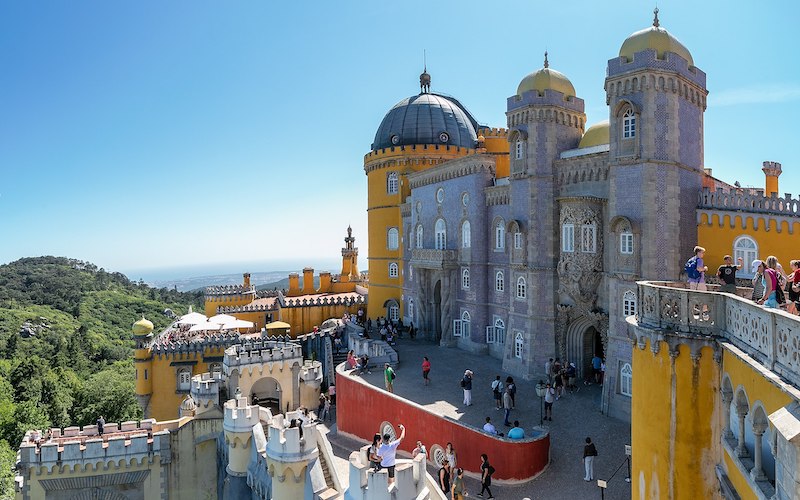
The Algarve
Faro
Faro is a nice town and has good cafes and restaurants and a univesity. however. You can see most of the town in just one morning or one afternoon. Most people use faro as a stepping stone to other destinations such as Tavira and Loule. The train from Faro goes all along the Algarve coast though, so it’s actually a good base if you want to stay put and see smaller destinations as day trips.
Tavira
Tavira is, in my opinion, one of the most beautiful destinations in the Algarve. Built around the river, this town is full of churches and chapels overlooking the river. Tavira castle is much a ruin, but the setting of the gardens and the view from the top are what make it truly spectacular.
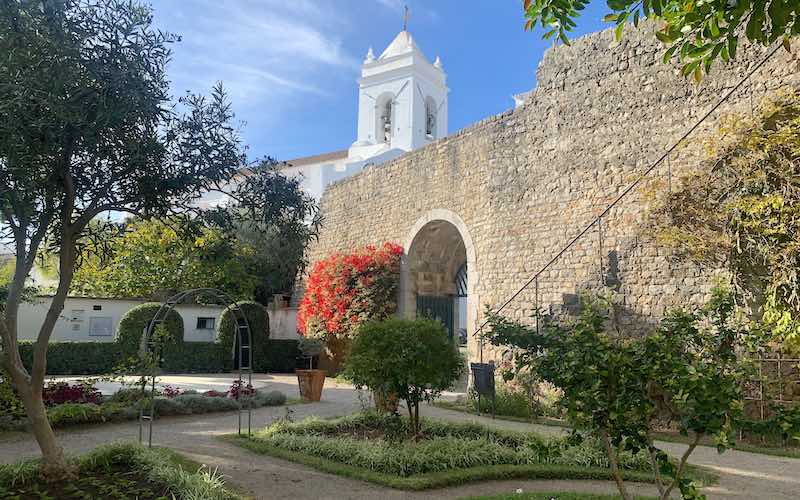
Lagos
Lagos is one of the most popular tourist destinations for Brits on the Algarve. It’s famous for its selection of sandy beaches including Praia dos Estudantes, and its local craft markets. From Lagos, you can also take a boat trip out to the famous Benagil caves.
Portimao
Many people visit Portimao and stay at Praia da Rocha. This is a great family destination as the beaches are lovely, and you can also visit Portimao’s old historical centre.
Smaller beautiful Portuguese towns (if you have more time!)
Amarante
Cute and quirky, Amarante has some gorgeous winding streets with traditional tavernas. It also offers a stunning view from the Bridge of Igreja de São Gonçalo.
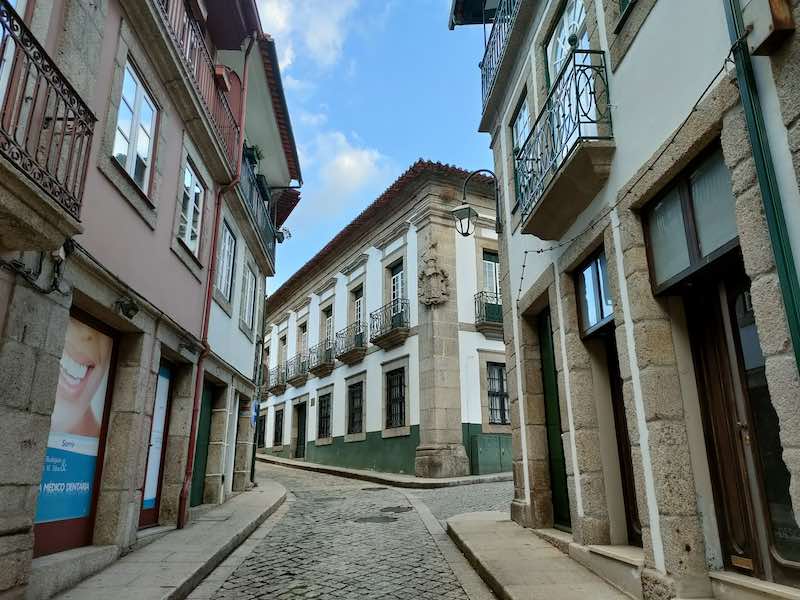
Lamego
Lamego is another one of those cute Portuguese towns (or cities!) that can be seen in a day. There are a couple of really interesting things to see here including Lamego Castle and the unmissable Santuário de Nossa Senhora dos Remédios with beautiful tiled staircases and fountains leading to the Church at the top, where you can capture stunning panoramic views of the city.
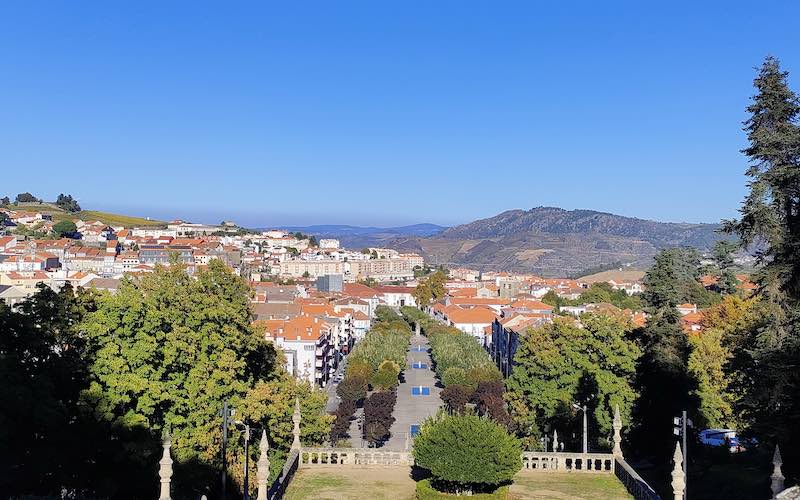
Viseu
Viseu is another one of my inland favourites. It feels more authentically Portuguese than Porto or Lisbon. Viseu is famous for its tiled azulejos city wall, and also several important Churches and museums – the Church of the Thirds, Cathedral of Viseu with a relic of S. Teotónio, patron of the city in front of the large church of Misericórdia.
Coimbra
Coimbra is famous for being home to the Oldest University in Portugal. Students are central to the vibrancy of the city, which also boasts amazing Churches, monasteries and an aqueduct. Coimbra is a walkable city and it is totally possible to see Coimbra in one day.
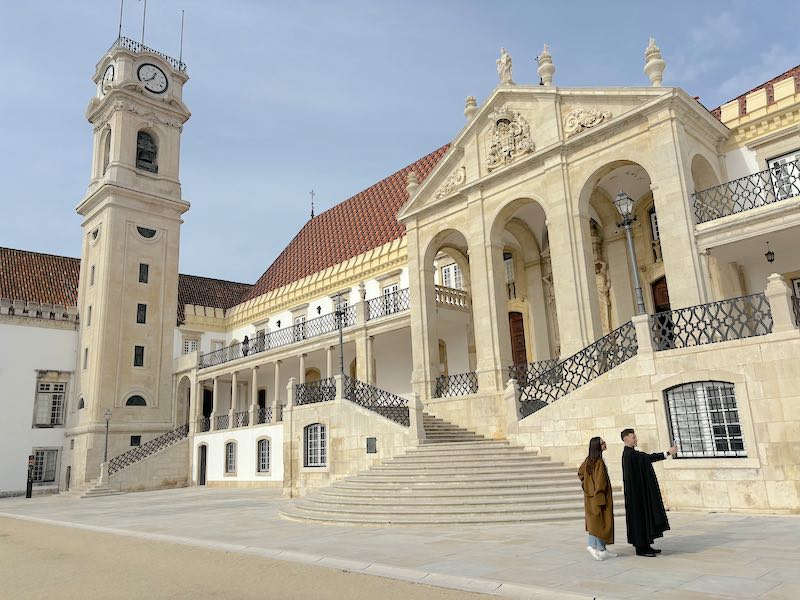
If you are looking to explore some of the smaller and more remote destinations or traditionally Portuguese towns and villages then you could consider Loulé, Monsanto, Guarda or Castelo Branco.
Further Reading on Portugal
If you enjoyed this blog on solo travel in Portugal, you might also like to read:
- Is Portugal worth visiting?
- Highlights of Portugal
- Monsanto – The most Portuguese village in Portugal
- Is Loulé worth visiting?

